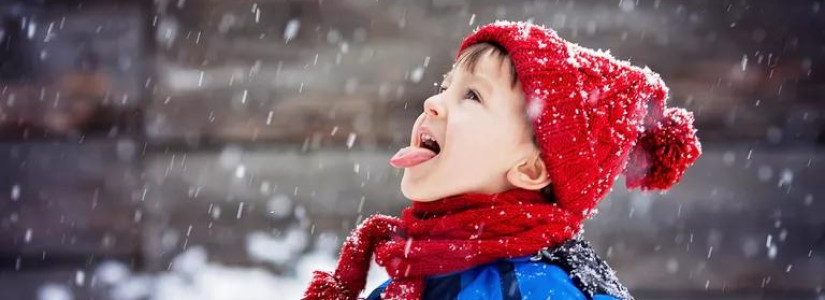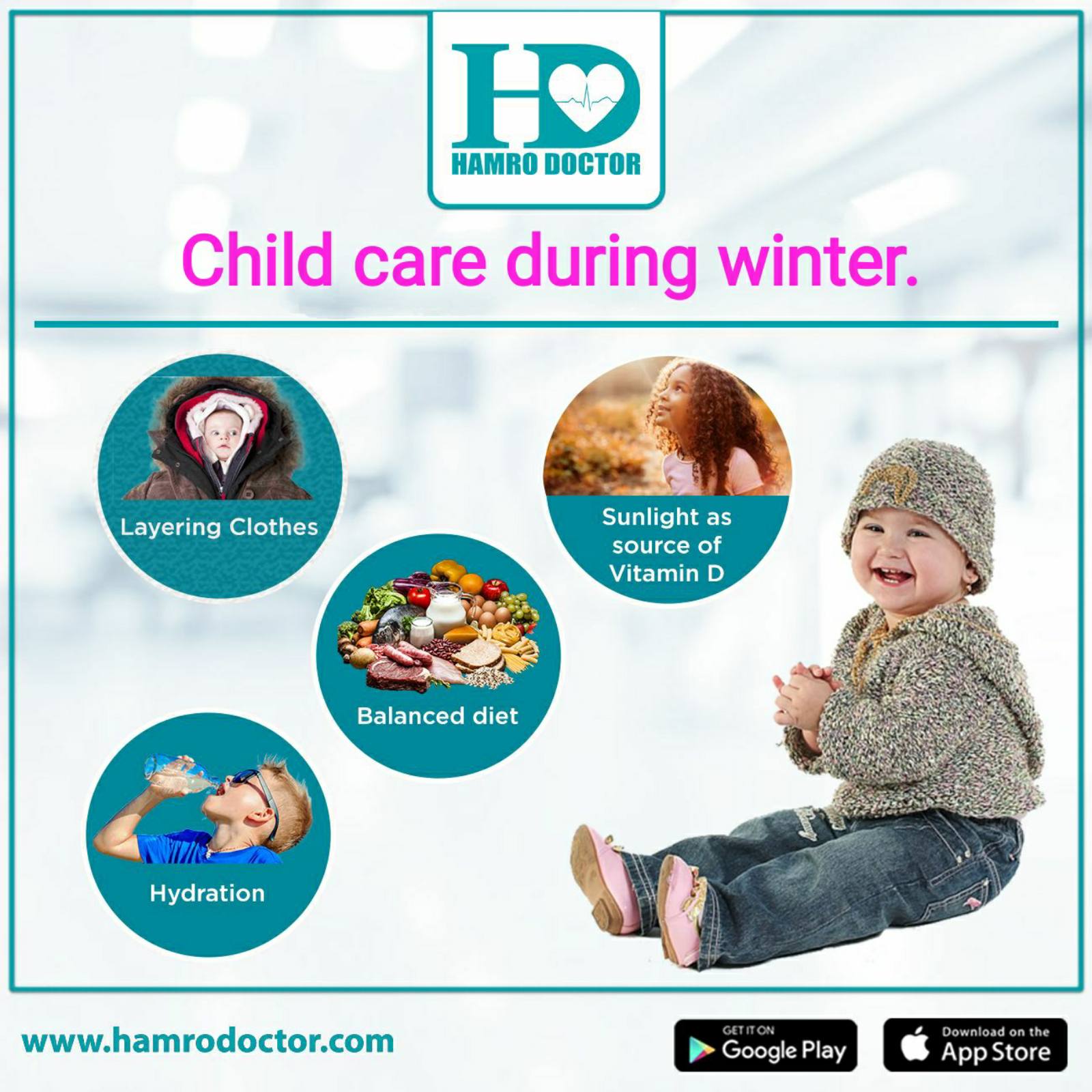CT- scan and MRI centers in Kathmandu
6 November, 2020CT- scan and MRI centers in Kathmandu...
Read More
Winter is already here, and the lowering temperature requires more care for the child. As children are more susceptible to various diseases like flu, it is very essential for the mothers to provide the right care. We have highlighted few important measures to protect your loved ones.
1.Layering Clothes
It is not necessary to stay indoors just because winter is here. For proper growth and development, playing outdoors in an essential aspect for the kids. We suggest parents make sure that their children are well dressed when they send them outside. The clothes should be warm, wind and waterproof. Woolen clothes are the best option as the insulation feature of woolen clothes helps to keep them dryer and warmer. Also, to protect their face, hands, ears, and neck they can always keep gloves, scarfs, and monkey caps with them.
2.Vitamin D for babies during winters
Vitamin D is important for the growth and development of children. Sunlight plays important role in the synthesis of Vitamin D. However, winter and no sun environment mind hinder this process. Therefore, letting babies and kids sunbathe is advised whenever possible. In addition, they will also be able to get some fresh air and feel better. Restricting the baby indoors can be gloomy and dull for both mother and baby.
2.Nutrition for children
It is very important to have a balanced diet to become healthy, strong, and immunocompetent. Having a balanced diet during winters is very crucial to avoid the risk of catching the flu and cold. A balanced diet comprising of vitamin-rich fruits, vegetables, dry fruits, sliced raw vegetables, whole-wheat crackers, and yogurt are some of the best food items that make them strengthen their immune system. In addition, honey had its benefit of keeping the body warm. Also, it has several nutritional benefits and is a rich source of multivitamins and flavonoids. It also gives instant relief from cold, flu, and cough and acts as a natural aid for sleep and eczema.

3.Hydration
In winters, sweating may not be as much as it happens in summer. In addition, lack of sweating can result in them not drinking enough fluids which can cause dehydration. In order to not let such things happen, it is essential to keep them hydrated with warm drinks that also contain vitamins and minerals. The drinks with antioxidants can strengthen their immune system.
4.Practice safety
The roads in winters are slippery because of dew, it is parents’ responsibility that their children are safe while playing and cycling outside. Children should have wrist, elbow, knee guards to protect them and helmets to protect the head.
5.Give massages to children
Massaging children is beneficial and can warm them up by stimulating their blood circulation. Using a heater to warm the room is suggested. However, there should be limited to keeping room heated and should be well ventilated.
6.Watch for the room temperatures
As children are at a significantly high risk of getting affected by the cold. It is advised to adjust the air conditioner to the winter mode, to always keep their rooms warm. Keep windows shut when the temperatures are dipping. Also, while using fireplaces, wood stoves, or other combustion heaters, it is essential to make sure that the room is properly ventilated to the outside and do not leak gas from the fuel or exhaust into the indoor air space.
7.Wash hands
The winter water from the taps can get cold and untouchable. This may make the kids not wash their hands before eating their meals. As they’ll be out throughout the day, the chances of their hands getting dirty and infection passing on through them are very high. Communicable diseases like cold, flu, and pneumonia can pass on if enough care is not taken. Encourage them to wash their hands with warm water and hand sanitizer before they eat.
Hypothermia
Hypothermia (abnormally low body temperature) is a dangerous condition that can happen when a person is exposed to extremely cold temperatures. In adults, warning signs of hypothermia include shivering, exhaustion or feeling very tired, confusion, fumbling hands, memory loss, slurred speech, and drowsiness. In babies, signs include the bright red, cold skin, and very low energy. If you notice any of these signs, take the person’s temperature. If it is below 95° F, the situation is an emergency—get medical attention immediately.
Frostbite
Frostbite is a type of injury caused by freezing. It can lead to a loss of feeling and color in the areas it affects, usually the nose, ears, cheeks, chin, fingers, and toes. Frostbite can permanently damage the body, and severe cases can lead to amputation (removing the affected body part). Signs of frostbite include a white or grayish-yellow skin area, skin that feels unusually firm or waxy, and numbness. If you notice signs of frostbite, seek medical care.
Leave a comment